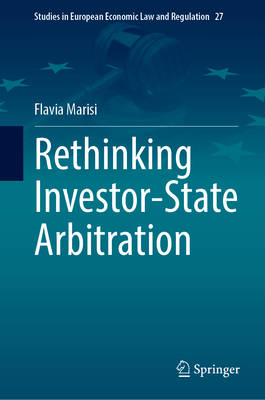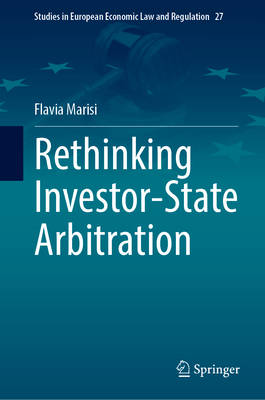
Je cadeautjes zeker op tijd in huis hebben voor de feestdagen? Kom langs in onze winkels en vind het perfecte geschenk!
- Afhalen na 1 uur in een winkel met voorraad
- Gratis thuislevering in België vanaf € 30
- Ruim aanbod met 7 miljoen producten
Je cadeautjes zeker op tijd in huis hebben voor de feestdagen? Kom langs in onze winkels en vind het perfecte geschenk!
- Afhalen na 1 uur in een winkel met voorraad
- Gratis thuislevering in België vanaf € 30
- Ruim aanbod met 7 miljoen producten
Zoeken
Omschrijving
A significant increase in investor-State arbitration cases has been observed since the 2000s. The trust placed by investors and States in this method of dispute resolution stems from several strengths. In addition to its neutrality, one of the primary reasons for its widespread use is its adaptability, enabling it to address specific challenges that have emerged in recent decades. The following elements highlight this adaptability: the arbitration procedure can be customised to meet the specific needs of the disputing parties and stakeholders involved. It effectively responds to evolving cultural norms and ethical considerations, such as diversity, gender representation, corporate social responsibility, environmental issues, and human rights. Moreover, it can adapt to global health crises by facilitating online hearings. Finally, during times of international armed conflict, economic exchanges, trade, investment, and investor-State dispute settlement foster economic integration and interdependence, contributing to maintaining commercial peace and supporting international peace and security.
However, investor-State arbitration has sparked vigorous debates, with many advocating for reform in three crucial aspects: transparency, legitimacy, and consistency. Multilateral negotiations are currently underway on various fronts, including the negotiation of more sustainable investment treaties, amendments to institutional arbitral rules, the design of a multilateral investment court, and the development of enhanced policy frameworks.
This book delves into the history of investor-State dispute resolution to provide readers with an understanding of how its main features have evolved over time. It examines the most intensely debated procedural issues, analyses their multifaceted characteristics, reviews the complex relationship between investor-State arbitration and the European Union, and explores potential options for addressing stakeholder concerns.
However, investor-State arbitration has sparked vigorous debates, with many advocating for reform in three crucial aspects: transparency, legitimacy, and consistency. Multilateral negotiations are currently underway on various fronts, including the negotiation of more sustainable investment treaties, amendments to institutional arbitral rules, the design of a multilateral investment court, and the development of enhanced policy frameworks.
This book delves into the history of investor-State dispute resolution to provide readers with an understanding of how its main features have evolved over time. It examines the most intensely debated procedural issues, analyses their multifaceted characteristics, reviews the complex relationship between investor-State arbitration and the European Union, and explores potential options for addressing stakeholder concerns.
Specificaties
Betrokkenen
- Auteur(s):
- Uitgeverij:
Inhoud
- Aantal bladzijden:
- 401
- Taal:
- Engels
- Reeks:
- Reeksnummer:
- nr. 27
Eigenschappen
- Productcode (EAN):
- 9783031381836
- Verschijningsdatum:
- 19/10/2023
- Uitvoering:
- Hardcover
- Formaat:
- Genaaid
- Afmetingen:
- 156 mm x 234 mm
- Gewicht:
- 771 g

Alleen bij Standaard Boekhandel
+ 549 punten op je klantenkaart van Standaard Boekhandel
Beoordelingen
We publiceren alleen reviews die voldoen aan de voorwaarden voor reviews. Bekijk onze voorwaarden voor reviews.









